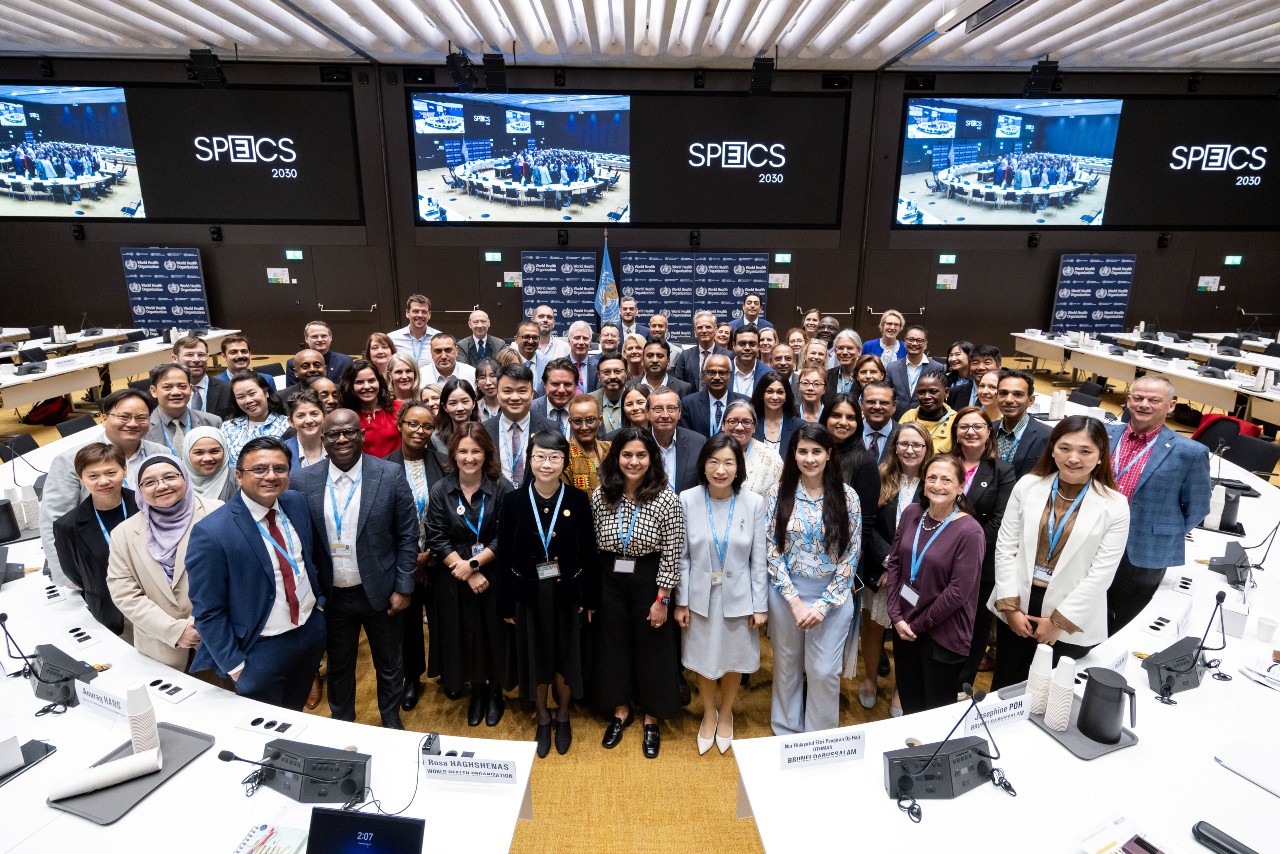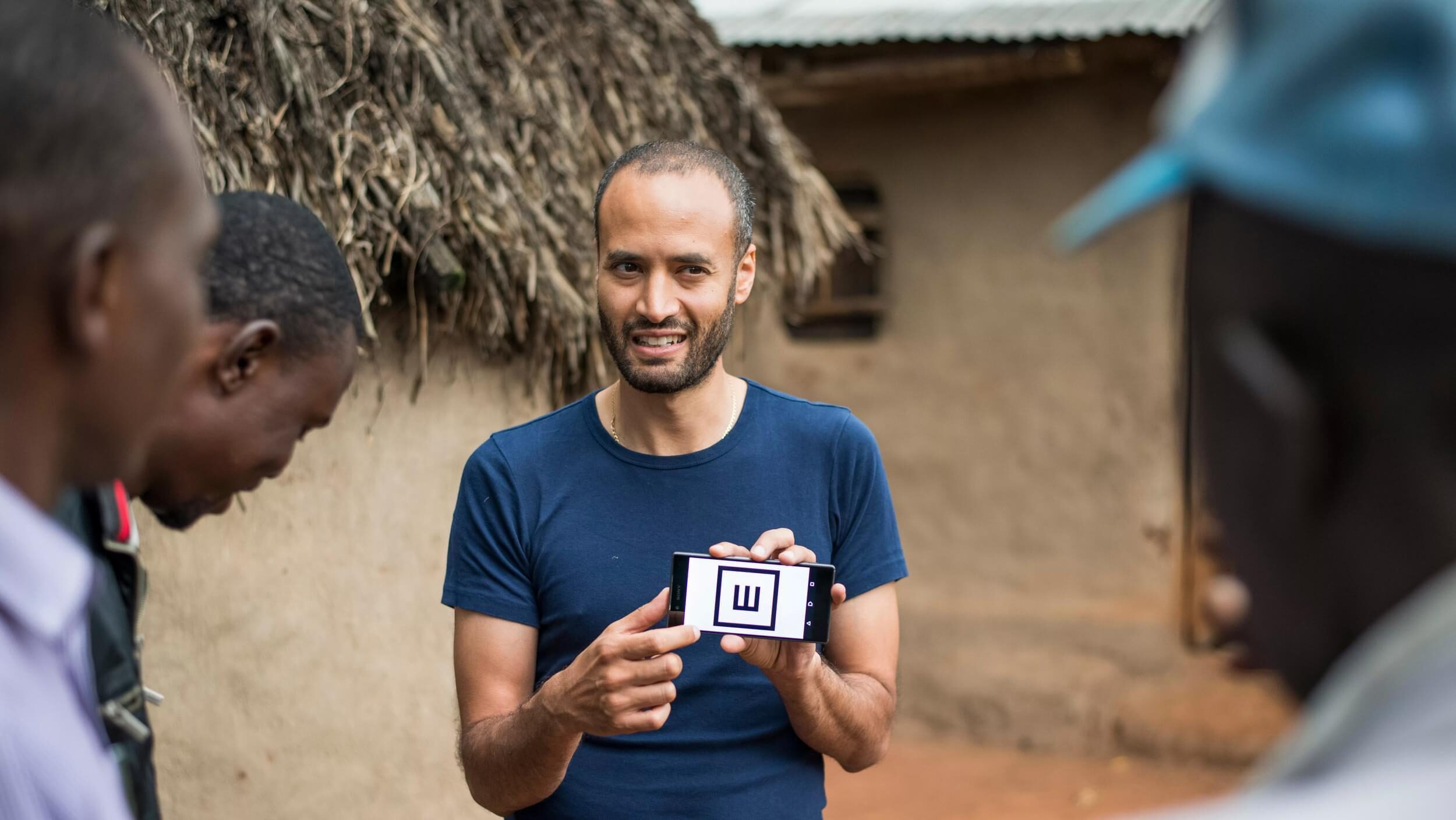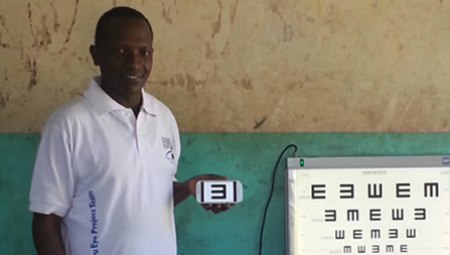Peek Vision has joined leading eye health organisations in launching a new initiative led by the World Health Organisation (WHO). SPECS 2030 is the first major WHO-led initiative to tackle refractive error, the world’s biggest cause of vision impairment.
As part of the initiative, WHO is hosting the Global SPECS Network, a group of organisations whose collective mission is to support SPECS 2030 through coordinated advocacy and united action. Peek is one of the founding members of the Global SPECS Network, along with thirty other organisations from across the eye health sector and beyond.

Representatives from across the eye health sector attended the SPECS 2030 launch event in Geneva
“The SPECS 2030 initiative marks a significant milestone in combatting uncorrected refractive error, commonly known as short-sightedness or long-sightedness, which is the leading cause of vision impairment in both children and adults,” says Dr Bente Mikkelsen, WHO Director for Noncommunicable Diseases, Rehabilitation and Disability. “Globally, it is estimated that only around one third of people with vision impairment due to refractive error have access to a pair of spectacles that allows them to see well.”
SPECS 2030 is calling for coordinated action across five key pillars:
- Improving access to refractive services
- Building capacity of personnel to provide refractive services
- Improving population education
- Reducing the cost of refractive error services
- Strengthening surveillance and research
Peek’s unique software and data intelligence platform provides NGOs, governments and other eye health stakeholders with powerful data insights into their services and programmes. It also provides clinically-validated screening and survey apps that support eye health programmes anywhere – even in remote, rural locations.
“The WHO SPECS 2030 initiative could be a game-changer for eye health,” says Peek CEO Dr Andrew Bastawrous, who attended the initiative’s launch event in Geneva, Switzerland, on 14-15 May 2024. “It’s great to see so many of the eye health sector’s major players on board with this initiative and committed to taking action. I’m also personally really excited at the role that Peek has to play in this movement. Our end-to-end eye health solution has potential to accelerate improvements across each one of the initiative’s five key pillars of access, capacity, education, cost and research.”
Speakers at the initiative’s launch event discussed the challenges they face delivering effective eye health services, with many mentioning the difficulties of planning, implementing and monitoring outcomes – all problems which Peek is designed to solve.
Dr Michael Gichangi, Head of the Ophthalmic Services Unit at Kenya’s Ministry of Health, addressed the opening session of the event. He outlined the success his country has had establishing a strong evidence base for their services, thanks to numerous Rapid Assessment of Avoidable Blindness (RAAB) surveys, which are powered by Peek. Several Peek-powered eye health programmes are also currently operating in Kenya. Dr Gichangi told delegates how he was using insights from data to help plan and improve eye services in Kenya, mentioning that his Ministry’s adoption of Peek has been part of this effort.
Peek is working with WHO to integrate its clinically-validated screening app into several health surveys, which play a vital role in guiding health service planning, including investment, infrastructure and implementation. The surveys will play a major role in providing future estimates of the WHO’s effective refractive error and cataract surgery indicators. These indicators are a vital part of the SPECS 2030 initiative and the wider global movement to bring vision and eye health to all as part of Universal Health Coverage.


